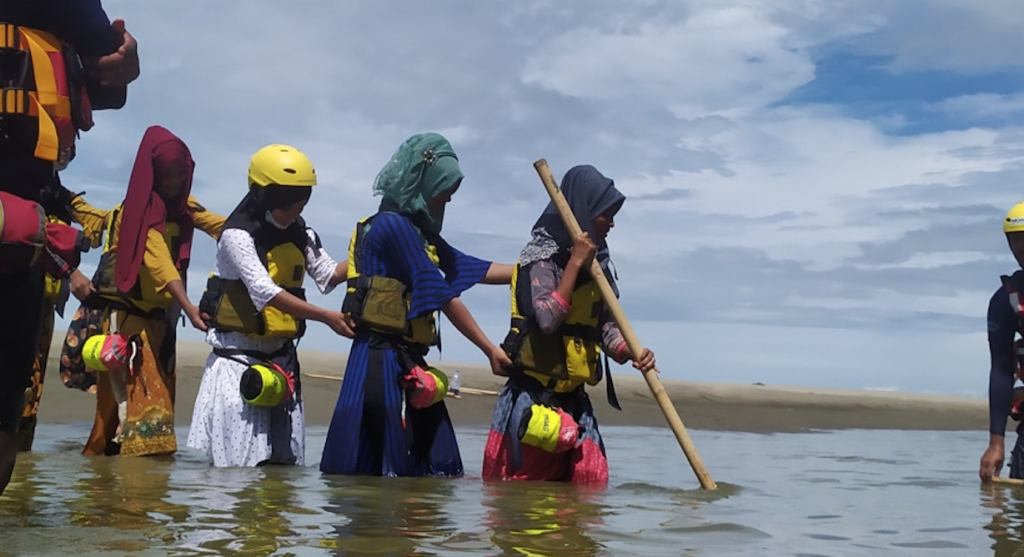Since Myanmar deprived the Rohingya people of their right to citizenship of the country where children, women and men were born and where they have lived for generations, the situation of this stateless Muslim minority has worsened day by day. Since the 1970s, when Myanmar authorities began to organize targeted attacks against the Rohingya people in Rakhine, perpetrating unspeakable violence and killings, many of them have been forced to flee the country in search of safety.
In 2017, as a result of worsening internal conditions, the flow of migrants fleeing the country experienced a sharp expansion. In August 2017 has led to at least 742,000 people fleeing across the border with Bangladesh, with thousands heading to the camps in Cox’s Bazar. In recent months, the situation in Myanmar has been deteriorating again and the number of people forced to flee has been steadily increasing.
MOAS has been present in Bangladesh since 2017, where we have treated over 90,000 people in our Aid Stations and where we have met many women who have told us their stories, the violence they have suffered. We shared difficult moments and moments of hope with them. With the launch, in 2019, of our DRR training courses for Disaster Risk Reduction for water safety and fire response in refugee camps, women have not just been recipients of humanitarian projects, but protagonists.
Rohingya women have been actively taking part in the training and learning valuable practical skills that enable them to act as first responders in emergency conditions. Thanks to the “train-a-trainer” approach, some of the women who took part in the courses will have the opportunity to pass on their skills within the community. A community often involved in emergency conditions due to the monsoons that cyclically hit the area creating pools of water in which many children lose their lives every year, or due to fires that flare up with the gas used for cooking or to heat the makeshift shelters in which they live.
The possibility of saving the lives of people living in refugee camps involved in such emergencies is a vital element of emancipation both for the awareness of each woman and, in particular, for the recognition by the entire community. An essential step towards women’s empowerment and gender equality in a reality where their role is still relegate to care and family life and where, unfortunately, gender-based violence, especially in the family, is widespread. The involvement of women as active members in rescue operations and in the dissemination of skills becomes a replicable model, an example for Rohingya girls and young women who can finally think about their future with greater awareness and hope. Giving them the opportunity to acquire specific skills means giving Rohingya women the opportunity to make their voices heard. A voice that can contribute to achieving a more equitable society, even though many of them are born and raised in a refugee camp where many of the basic services are lacking.
The United Nations, by dedicating International Women’s Day to the theme “Invest in women: Accelerate progress”, reminds the whole society how investing in women and achieving a truly equal global society can be an enrichment for all of us, in terms of civilization, progress and well-being.
MOAS will continue to highlight the value of women within our missions, the importance of their contribution and the resilience with which they face emergency situations in the most difficult areas of the world, becoming important agents of change.
If you are interested in the work of MOAS and our partners, please follow us on social media, sign up for our newsletter and share our content. You can also reach out to us at any time via [email protected]. If you want to support our operations, please give what you can at www.moas.eu/donate.

